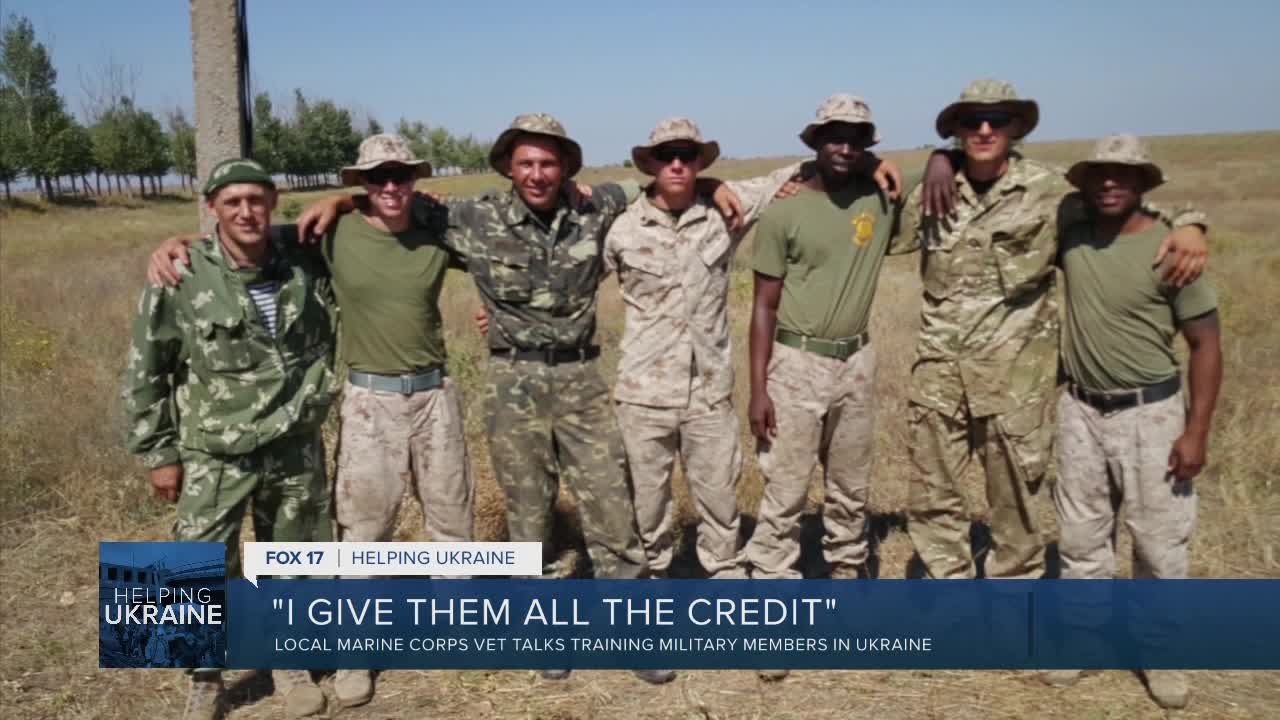GRAND RAPIDS, Mich. — It’s a sense of satisfaction that goes beyond one country, says Mathias Mapes-Pearson.
“I’m proud too,” said Mapes-Pearson.
Mapes-Pearson, a U.S. Marine Corps combat veteran who lives in Grand Rapids, holds the same appreciation for Ukraine’s military that the country’s people share too.
As he’s watched the war in Ukraine unfold over the past month, he says he has been impressed with Ukraine’s ability to resist Russian forces.
“I give them all the credit,” said Mapes-Pearson, who adds it’s a much more battle-tested military than the one he met years earlier.
“I was nervous to see how well they would do, but, in seeing how almost poorly trained the Russian military is, it almost lends itself to the Ukrainian military training with Western-style militaries because Western-style militaries are kind of the antithesis to how Russian militaries work.”
In 2015, as part of the Fleet Anti-terrorism Security Team (FAST), Mapes-Pearson participated in a joint exercise with Ukraine and Moldova.
For more than three weeks near Ukraine’s Black Sea region, he ran drills that taught Ukrainian troops about marksmanship, identifying and eliminating IEDs, and other skills.
Ukrainian forces were being sent to fight in its eastern region, which had been annexed by Russia in 2014.
“It was interesting,” said Mapes-Pearson. “It was just about a year after they kicked off in Crimea and the Donbas region.”
At the time, he says he mostly worked with people who had little experience in combat, like conscripts and draftees.
“One of the first people that I met that spoke some English... he was in artillery, but he was just prior to that an accountant,” said Mapes-Pearson.
Eight years later, he believes Ukraine is in a position to win, due to an underestimated military strength by Russia and a home-turf advantage supported by the U.S. and other countries in the West.
“You have a significant amount of units that are going to have combat training underneath them, that are going to have that experience, and know how the Russians somewhat fight in both those regions that they can instill on their newer units that come into service,” said Mapes-Pearson.
He added Russian forces appear to be poorly trained, which adds to the advantage.
“Russia has really damaged their image, regardless of how they want to spin it,” said Mapes-Pearson.






